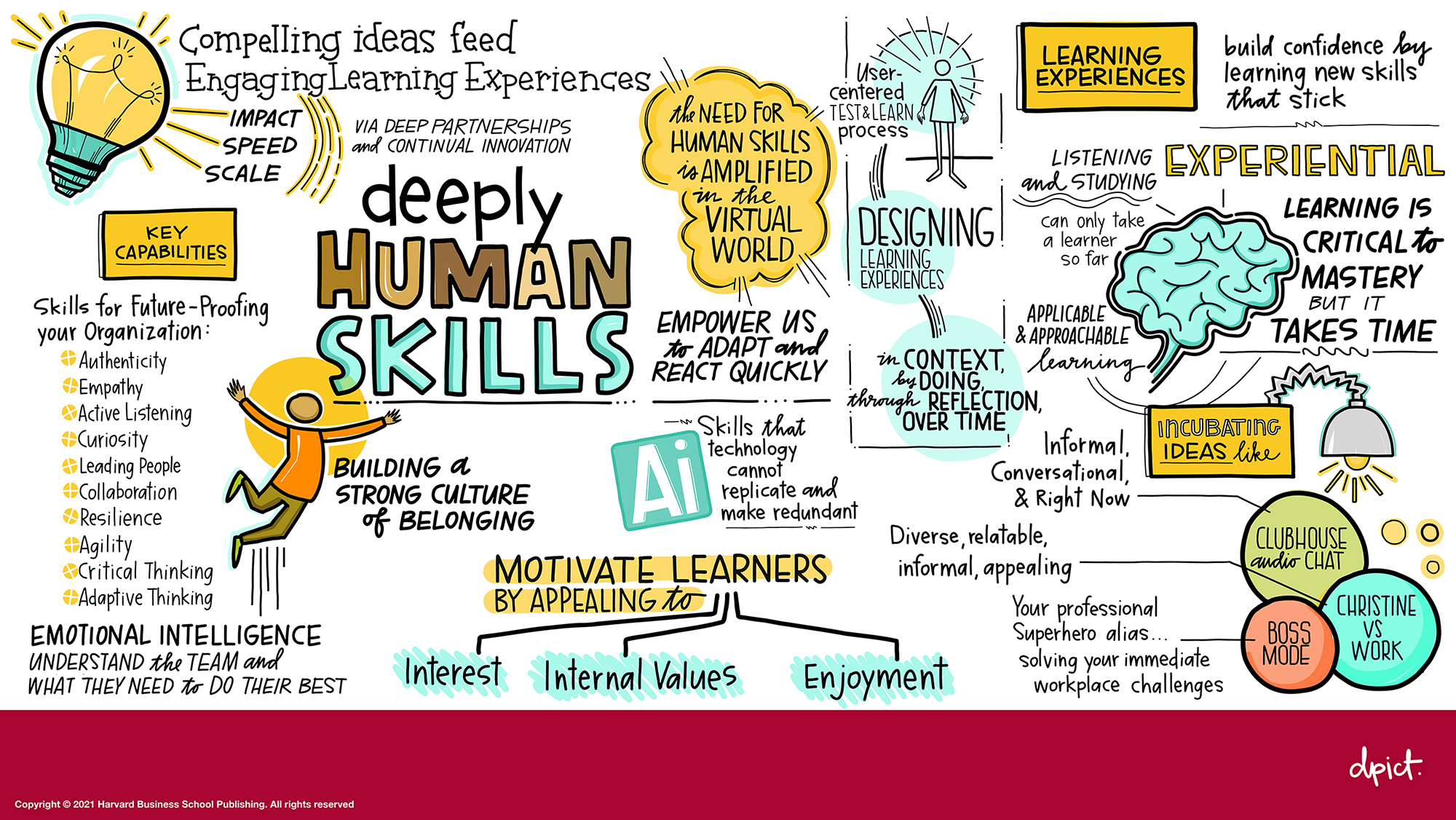The Essential Skills For Being Human – Change Your Life
If you’ve ever watched the traditional movie “Fiddler on the Roof,” you may understand the rich tapestry of heat and The Essential Skills For Being Human that characterizes many Jewish families. They’re acknowledged for their tight-knit bonds, consistent hugs, songs, dances, laughter, and shared tears.

But my own Jewish family was different. We adhered to a philosophy best described as “Think Yiddish, act British.” We were reserved and stoic. Don’t get me wrong, I had a fulfilling upbringing. Our home was intellectually stimulating, where Thanksgiving dinner conversations veered into discussions about Victorian funerary monuments and lactose intolerance origins (yes, really). Love filled the air, but we had a peculiar way of expressing it.
Read More – Best Amusement Parks In India
I grew up detached for reasons that combine nature and nurture. When I was four, my nursery schoolteacher informed my parents that I often observed other children from the sidelines rather than actively joining in. This made for a promising journalism career but needed to bode better for emotional availability or a vibrant social life.
Read More – Top 10 Amusement Parks In Boston 2023
A decade post-college, you’d find me a pleasant guy, generally cheerful but inhibited. Connecting with me was challenging. I was a seasoned escape artist, adept at diverting intimate conversations by suddenly becoming engrossed in my shoes. I also escaped on some errand of vital importance to my dry cleaner.

Some Real Essential Skills For Being Human
Life, however, tenderizes the heart. Becoming a father was a revolution in emotion. Over the years, I’ve experienced the typical blows and setbacks of adulthood – broken relationships, personal failures, and the vulnerability accompanying aging. These challenges introduced me to more profound, previously repressed parts of myself. I realized that living detachedly is a withdrawal not only from others but also from oneself.
Read More – Cities In Washington DC | Things To Do | Adventure Spots
I’m no exceptional person, but I’m a work in progress. I can examine my flaws and strive toward full development. Along the way, I’ve uncovered something profound. While being open-hearted is a prerequisite for kindness and wisdom, it’s not enough. People need social skills to navigate relationships.
Forming connections, building friendships, and fostering communities involves several small, concrete actions performed adeptly. These include genuine curiosity about others, the ability to disagree without damaging relationships, and revealing vulnerability at a suitable pace. They also have active listening, knowing when to ask for and offer forgiveness, and the skill to host gatherings where everyone feels embraced.
Read More – 2023 Latest Eros Tour Poster Check Now
The gift of attention and the essential skills for being human
The Essential Skills For Being Humans yearn for connections. Beyond all else, they crave someone who looks into their eyes with love and acceptance. The challenge lies in needing more practical knowledge to fulfil this need. Society has unintentionally omitted guidance on the most vital aspects of life.
The results of this societal gap are evident in social clumsiness. After a party or gathering, I often realize I must ask myself one question. Only about 30% of people excel at asking questions, while the rest, although they are friendly, need more basic curiosity about others.
This deficiency is also evident in the pervasive feeling of invisibility that many people experience. I encounter individuals who feel unseen and disrespected during my journalistic work. For instance, Black people might believe that white individuals fail to grasp the systemic inequities they face daily. Those in rural areas might feel overlooked by coastal elites.
People from opposite political spectrums often stare at each other with mutual incomprehension. Tierd young people might believe their parents and everyone else misunderstand them, while husbands and wives may discover that their partners, who should know them best, hardly know them at all.
Over the last four years, I’ve been working on a book titled “How to Know a Person: The Art of Seeing Others Deeply and Being Deeply Seen.” I intended to create a practical guide that taught these skills and allowed me to learn and apply them in my own life. The goal was to help individuals understand others, making them feel valued, respected, and seen.
The art of conversation & The Essential Skills For Being Human.
The motivation behind this endeavor is multifaceted. I wanted to acquire The Essential Skills For Being Human for practical reasons and i didn’t just want to know their superficial technical abilities when working with someone so i can delve deeper to understand their emotional responses during crises, comfort with uncertainty, and generosity towards colleagues.
Moreover, I wanted to hone The Essential Skills For Being Human for moral reasons. By showing positive attention to others, I could facilitate their growth and help them recognize their potential. Genuine understanding is one of the most generous gifts one can offer another.
Lastly, this endeavour is linked to national survival. We evolved to live in small, homogeneous groups. Today, we inhabit incredibly diverse societies, yet our social skills often fail to bridge gaping divisions. Our current era can be brutal and alienating.
Throughout my adventure, I found that some people see others better than others. In any institution, there will be diminishers and illuminators. Diminishers are self-absorbed, making others feel small. They rely on stereotypes and make quick judgments. Illuminators, however, care deeply about people. They’ve trained themselves to recognize others, to ask the right questions at the right time, and view the world from any angle. Their care radiates like a beacon, helping others feel essential, reputable, and alive.
Illuminators are authentic delights to be around. E.M. Forster’s biographer once noted that speaking with him felt like being seduced by inverse charisma. This compels you to be your most honest, sharpest, and authentic self. Imagine the immense gift it is to offer this kind of hospitality to others.
There’s a fascinating story from Bell Labs where patent lawyers wondered why certain employees were more productive than others. After a thorough investigation into educational backgrounds and job positions yielded no answers, they noticed a peculiar pattern. The most productive researchers regularly ate with electrical engineer Harry Nyquist. Nyquist was an illuminator – he truly listened to their challenges, delved into their thoughts, and brought out their finest. In this, he illuminated their potential.
Illuminators are essential for seeing people well, and these skills are crucial for the journey we’re embarking on.
Tips to Unlock Conversation Art And The Essential Skills For Being Human
You must engage in conversation to truly understand the people in your life and their perspectives. Asking the right questions and being an excellent listener are the keys to conversational excellence. Here are some practical tips from experts to improve your skills:
1. Listen actively: When someone speaks, listen actively. Engage so intensely that it feels like you’re burning calories. Imagine being in a lively church congregation, where you enthusiastically respond with “amen,” “aha,” and “yes!” as they talk. Loud listeners make conversations delightful.
2. Storify your conversations: Instead of asking, “What do you think about that?” try asking, “How did you come to believe that?” This approach encourages people to share the stories and experiences that shaped their beliefs. People are more open and personal when telling stories, making conversations warmer and more enjoyable.
3. Looping is vital: People are sometimes more transparent than they think, and we’re not as adept at listening as we assume. By practicing “looping,” which means paraphrasing what someone tells you, you can eliminate misunderstandings and ensure you’re on the same page.
4. Turn your partner into a narrator: Encourage people to provide more details when sharing a story. Ask specific follow-up questions like, “Was your boss angry or just a bit irritated when she said that?” or “What was her tone of voice?” These questions help them revisit the moment more vividly, resulting in a richer story.
5. Avoid topping stories: If someone confides in you about their struggles with their teenager, resist the urge to respond with a similar story about your troubles. It might seem like you’re connecting, but you’re shifting the focus back to yourself. Instead, stay engaged and supportive of their story.
By learning these conversational techniques, you can gain deeper insights into the people you speak to and foster more meaningful and enjoyable connections. G the focus back on yourself. Instead, stay engaged and supportive of their story.
By learning those conversational techniques, you may benefit from deeper information about The Essential Skills For Being Human. This will foster greater meaningful and exciting connections.
Some Big Questions.
Student A: Are you married?
Niobe Way: No.
Student B: Are you divorced?
Way: Yes.
Student C: Do you still love him?
Way: [Deep gasp of breath]
Student D: Does he know that you still love him? Does he know?
Way: [Tears in her eyes]
Student E: Do your children know?
Communication skills
Communication is at the core of human interaction. Our ability to convey thoughts, emotions, and ideas through language, body language, and non-verbal cues is fundamental to building relationships and understanding one another.
Empathy and compassion
Empathy is the capacity to apprehend and proportion others’ emotions. Compassion, however, is the willingness to help those in need. These features inspire our moral and ethical values, allowing us to connect more deeply.
Critical thinking
Critical questioning includes researching, comparing, and remedying complex problems. It enables us to make informed decisions, question assumptions, and think logically.
Adaptability
Humans are incredibly adaptable. Our capacity to adjust to changing physical and social environments is crucial to our survival and progress as a species.
Creativity
Creativity is the wellspring of innovation and development. It allows us to envision and create creative answers, artwork, tracks, and countless ways of expression.
Emotional intelligence
Emotional intelligence includes recognizing and coping with our feelings and the people of others. It is crucial for effective interpersonal relationships and conflict resolution.
Problem-Solving
Solving problems is necessary in our lives. It’s about figuring out problems, reading them, and locating realistic answers.
Resilience
Resilience is the ability to overcome adversity and demanding situations. It gives us the energy to overcome challenges and setbacks and emerge stronger.
Collaboration
Collaboration and teamwork are essential for achieving common goals. It enables us to combine our strengths and work towards a shared purpose.
Time management
Effective time management is crucial in a fast-paced world. It maximizes our time, balancing work, leisure, and personal development.
Self-awareness
Understanding oneself, including strengths and weaknesses, is critical to personal growth and relationships.
Curiosity
Curiosity drives exploration and learning. It’s the engine behind our quest for knowledge and understanding.
Decision making
Making informed choices impacts each aspect of our lives, from the mundane to the life-changing.
The Power of True Connection And The Essential Skills For Being Human
In many situations, humans tend to hold around their “elite bags.” This way, humans often view you via the lens of where you return from, what you do, or who you associate with. It’s a shared revel in for me because I write for well-regarded guides and used to teach at Yale. People on each facet of the political spectrum often see me as part of systems they think don’t recognize or include them. This can result in complaints, blame, and disagreements in our conversations. At instances, I used to experience the urge to get protective, trying to mention, “You don’t apprehend the entirety I’m handling. You do not know I’m virtually looking to make a high-quality effect.”
But I’ve realized it’s better not to succumb to this temptation. When I engage in conversations that touch on differences or inequality, my initial duty is to stand in the other person’s shoes and fully comprehend their perspective. The best approach is to ask people about what they’ve said, not once, but thrice and in three different ways. I often say, “I want to understand as much as possible. What am I missing here?”
Resist Defensiveness: Seek Understanding
In their book “Crucial Conversations,” Kerry Patterson, Joseph Grenny, Ron McMillan, and Al Switzler highlight that every conversation operates on two levels. The first level consists of the words we speak, addressing the topic. The second level exists in the emotions accompanying our terms, impacting the tone and atmosphere of the conversation. Whether consciously or not, each comment demonstrates respect or disrespect, making the other person feel more secure or threatened.
The Perils of Fear and Threat in Dialogue
If we allow fear and a sense of threat to dominate our conversations, our motivations can quickly turn negative. We start talking not to understand but to argue and hurt. Everything we say afterwards can be damaging and detrimental, making it harder to mend the relationship in the future. On the flip side, maintaining a genuine curiosity about the other person’s viewpoint demonstrates respect. As the authors of “Crucial Conversations” point out, care is like the air in a conversation. When it’s present, we hardly notice it, but when it’s absent, it becomes all-consuming.
Everyday Acts of Consideration
Remarkable individuals perform grand acts of kindness worthy of Nobel Peace Prizes. However, the novelist and philosopher Iris Murdoch argues that the core moral skill lies in being considerate to others in everyday life’s intricate circumstances. Morality isn’t just about those big moments; it’s about how we interact with one another minute by minute.
Over the years, my perception of wisdom has transformed. I used to think wise individuals were like sage figures, imparting life-changing advice akin to Yoda, Dumbledore, or Solomon. However, an intelligent person’s most valuable trait is being tenderly receptive.
The Wisdom of Tender Receptivity
The “illuminators,” as I call them, offer the gift of witnessing. They take the stories, rationalizations, and episodes we share and see us in our noble struggle and they understand how we navigate life’s dilemmas – balancing intimacy and independence, control and freedom and they realize our current selves are just one point along our ongoing growth journey.
Confidants as Coaches
The most effective confidants, those we turn to in times of trouble, act more like coaches than wise philosophers. They accept your story but encourage you to clarify what you truly want or to acknowledge the baggage you’ve left out and they aren’t here to fix you but to help you refine your story to become more honest and accurate and they call you by your name, as a beloved individual although they see who you are becoming before you see it yourself and provide you with a reputation you can strive to live up to.
You might count on the fact that I’ve transformed into a master of verbal exchange, capable of enveloping humans in a comprehensive include of attention and inspiring them to be themselves. In reality, I’m no longer there, but. I start a communication to be targeted entirely at the opposite individual. Still, after a pitcher of wine, I regularly discover myself sharing funny stories and letting my ego take the lead. I’ve made development in becoming extra approachable and inclined, though. I’ve found a lot about human psychology, and I’m proof that human beings can alternate, now and then, dramatically, even in midlife or later.
I’ll conclude with a poignant story from Kathryn Schulz’s memoir, “Lost & Found.” Her father, Isaac, was a talkative and curious man who always had something to say about everything, from the works of Edith Wharton to the intricacies of baseball rules. However, his health began declining in the last years of his life, and eventually, he stopped talking.
During his final days, his family gathered around him as he neared the end and they realized they had grown closer, huddled together around his diminishing spark and they went around the room, taking turns expressing the things they didn’t want to leave unsaid although they told Isaac what he meant to them and how he had led an honourable life.
Schulz described the scene: “My father, though mute, appeared alert, looking from one face to another as we spoke, his brown eyes glistening with tears. Usually, I wouldn’t say I liked seeing him cry, but for once, I felt grateful. It gave me hope that he understood for the last time in his life and perhaps the most important time. At that moment, everywhere he looked, he saw himself where he had always been with his family: at the centre of the circle, the source and subject of our enduring love.”
In the end, those connections, those moments where we truly see and understand one another, matter most.


















Leave a Reply
View Comments